
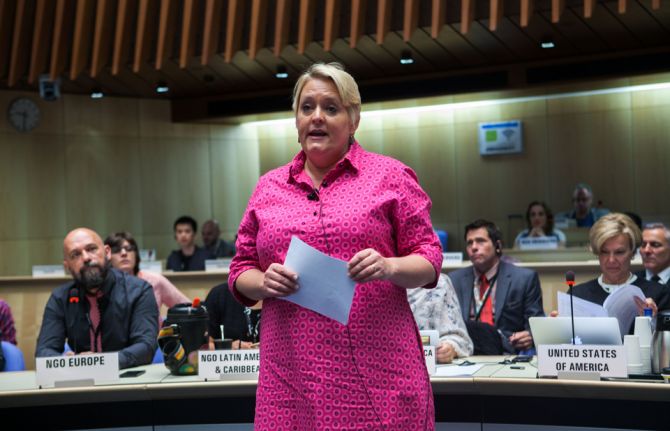
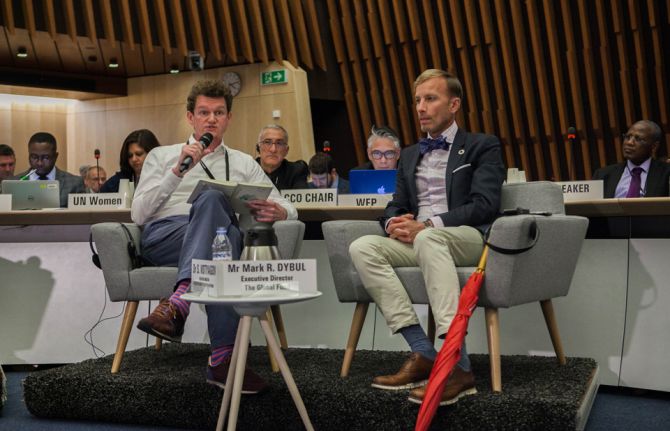
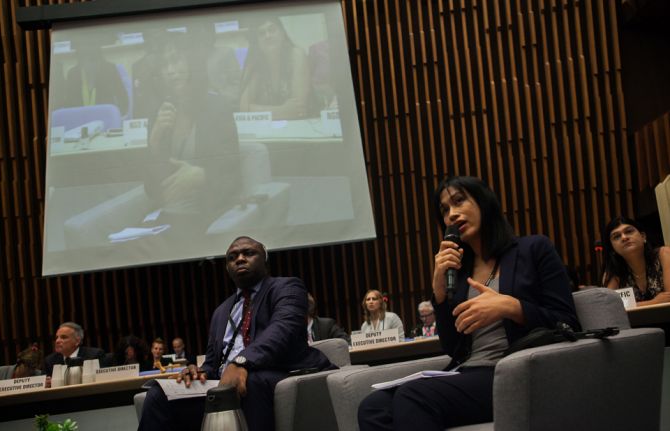
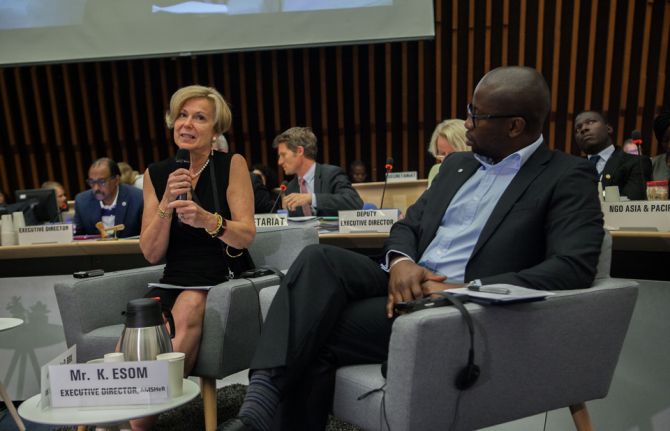
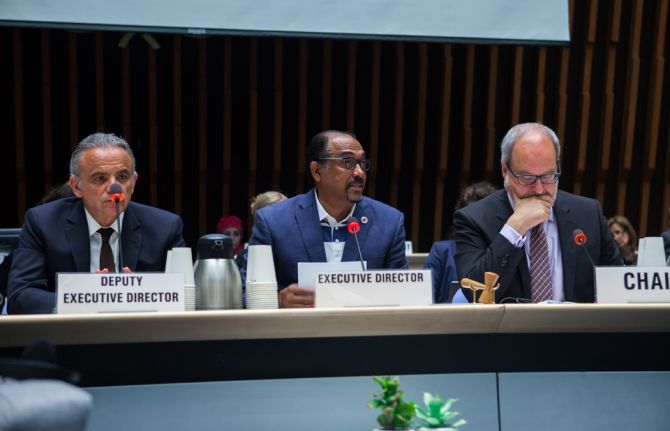
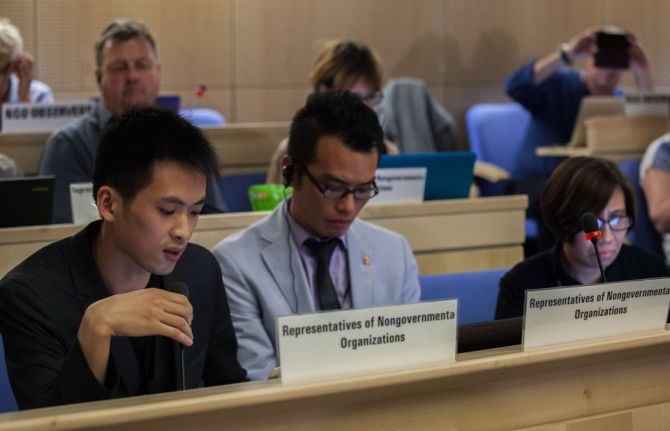
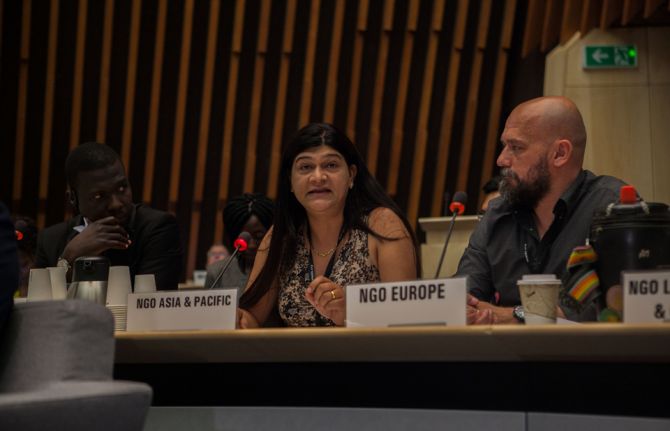
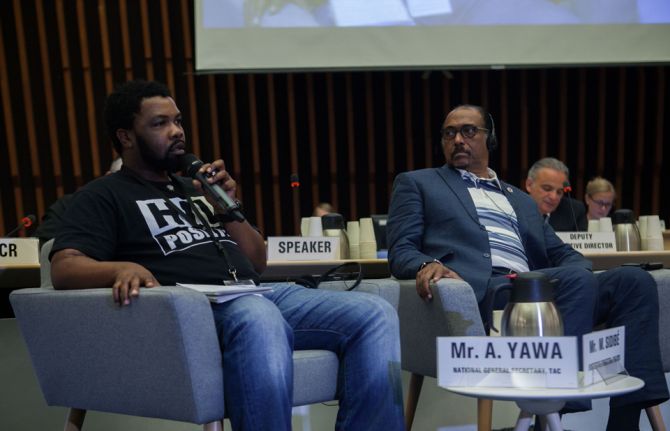
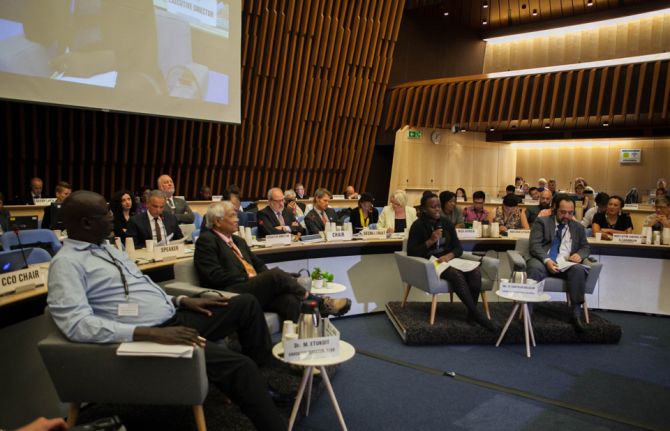
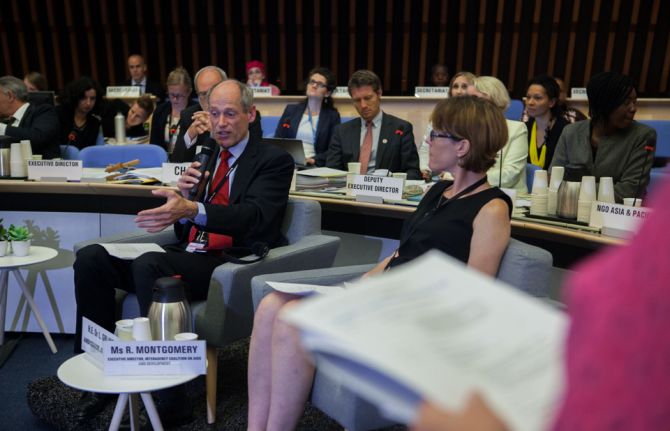
Update
Taking action to invest in community responses to HIV
01 July 2016
01 July 2016 01 July 2016The role of communities is essential in responding to the AIDS epidemic. Community advocacy, service delivery and participation in decision-making have shaped every aspect of the global AIDS response. Yet many community networks and civil society organizations are struggling to fund their work and too often community voices are not meaningfully included in policy dialogue, in particular the voices of key populations.
To identify specific steps to better include and finance community responses, more than 20 speakers came together in Geneva, Switzerland, on 30 June at the thematic day of the UNAIDS Programme Coordinating Board. The thematic session was entitled “The role of communities in ending AIDS by 2030” and included speakers from civil society, governments, development partners and academia.
While community responses need to be reinforced, including community-based service delivery and advocacy, many community organizations are not receiving the support they need to engage fully. In a recent UNAIDS survey of civil society organizations, 42% of respondents reported a decrease in their budgets since 2013, while a further 26% said their budgets had remained flat. Smaller organizations reported suffering most from cuts, while funding decreased or remained flat for every type of activity. Organizations focused on advocacy were worst affected.
There is strong evidence that community responses produce results and UNAIDS recognizes that there is an urgent need for them to be scaled up and fully integrated into national responses. Funding policies, national regulatory frameworks and inhibiting legal environments need to be reviewed to remove barriers that prevent the flow of funding from national and international sources to civil society organizations. Participants stressed that community responses must be fully integrated and become equal partners in delivering equitable, evidence-informed, gender-responsive and accessible services to all people who need them.
Over the past year, UNAIDS has issued a range of reports on the need for greater inclusion of, and investment in, community responses, including Governments fund communities, Invest in Advocacy, Stronger together, Communities deliver and Community-based antiretroviral therapy delivery.
Quotes
“It is best to consult the people affected in a community before you start anything—they must be involved.”
“Advocacy is when we say we can’t accept what is and we work to change it. Advocacy is the software for the hardware of services.”
“My worry is that if we don’t change business as usual we won’t achieve the shift from inclusion to full integration of community responses in national plans. And with inclusion there needs to be the funding necessary to fully support community responses and to tap community energy and expertise.“
“We need to hear your voices because it makes us and our programmes better. “
“Today is about sparking change. We want to talk about the policy agenda to better incorporate community responses and finance these responses.”



